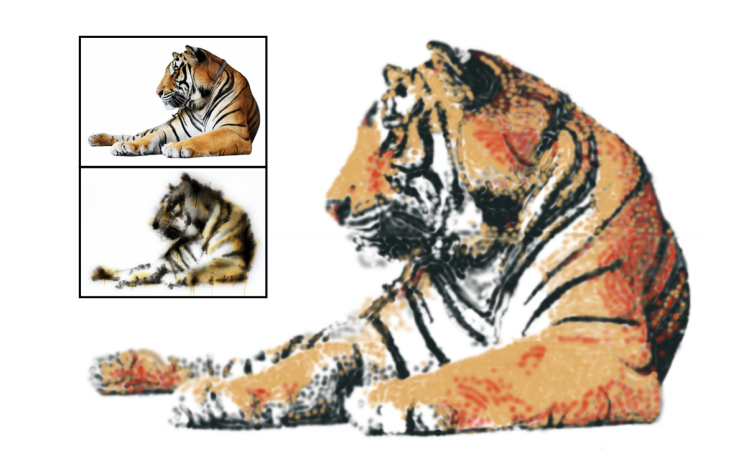Banksy for beginners: The smart spray paint tech capable of creating easy large-scale art

Researchers at Dartmouth College have created a smart paint spray that utilises robotic technology to reproduce large-scale digital photographs and murals.
Designed to allow inexperienced artists to re-create accurate spray-painted images or computer-assisted original creations, the automated system operates via a pair of webcams, QR code tracking and a 3D-printed mount attached to a run-of-the-mill spray can.
When painting against a wall or canvas, the customised "servo-monitor" nozzle toggles on and off based on a pre-programmed system which is tracked in real time by a computer. The result? You can wave the spray around to your hearts content and the image will be picture-perfect.
Developed in conjunction with ETH Zurich, Disney Research Zurich and Columbia University, the 'graffiti for beginners' prototype created by the scientists was tested only on a flat paper surface, although the team speculates that its method - with additional testing – could be applied to curved surfaces which would give the smart-spray an advantage over traditional digital-assisted painting methods.
Despite a few blurry textures (and a fairly slapdash job at piecing the separate canvases together), a sizeable 4.7 x 2.5 metre black and white mural of a rather handsome snail was recreated by the cutting-edge paint-tech with relative ease and the results – which you can see for yourself in the above video – are relatively impressive.
"Our assistive approach is like a modern take on 'paint by numbers' for spray painting," said Wojciech Jarosz, the co-author of the experiment's accompanying journal that appeared Computer & Graphics. "Most importantly, we wanted to maintain the aesthetic aspects of physical spray painting and the tactile experience of holding and waving a physical spray can while enabling unskilled users to create a physical piece of art."
With the world of digital art already embracing the latest innovations in technology by entering the realms of virtual reality, is it really that strange to wonder whether the next Banksy could be an innovate artist and passionate computer wizard wielding a robotic spray can? Probably, yes.
© Copyright IBTimes 2024. All rights reserved.






